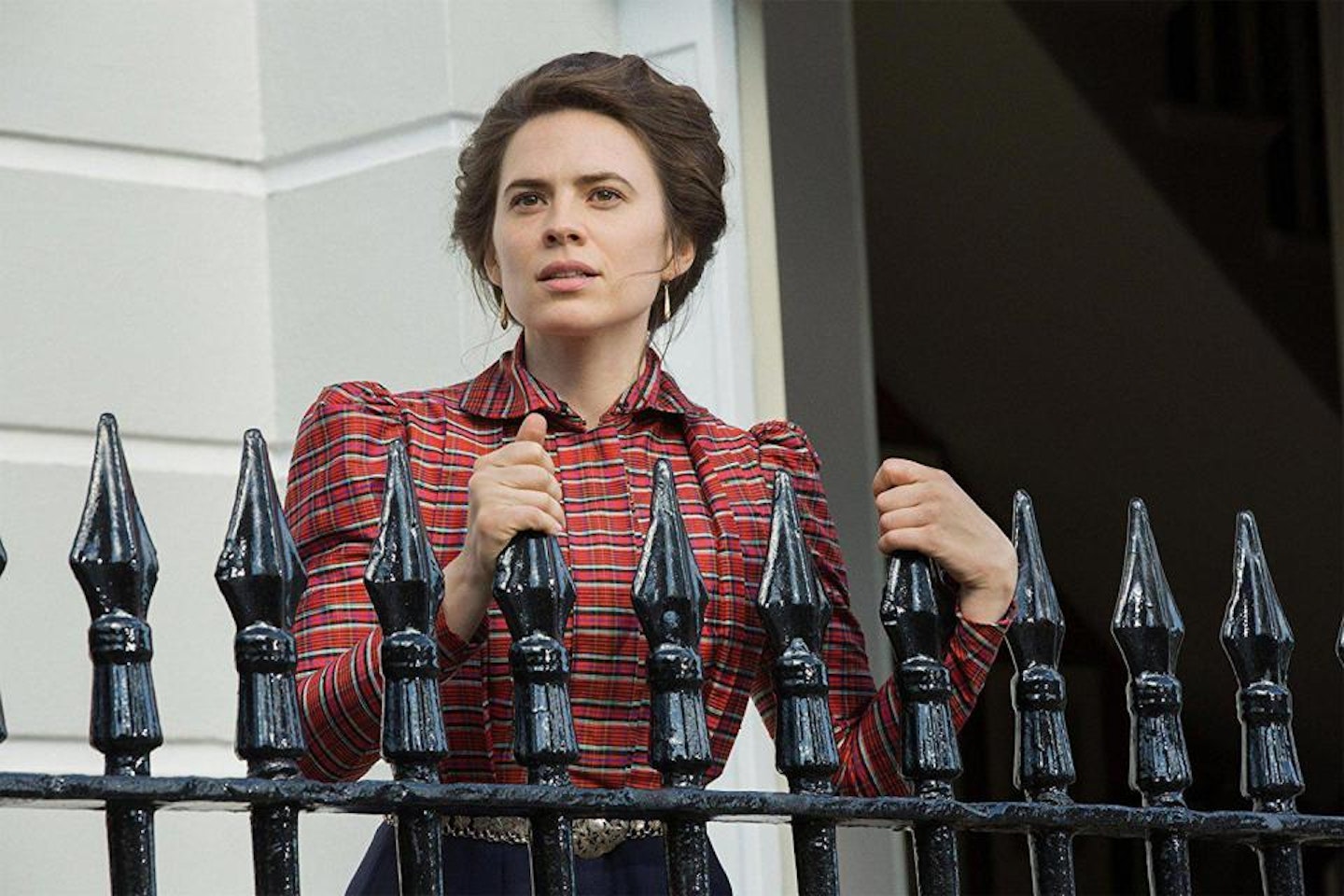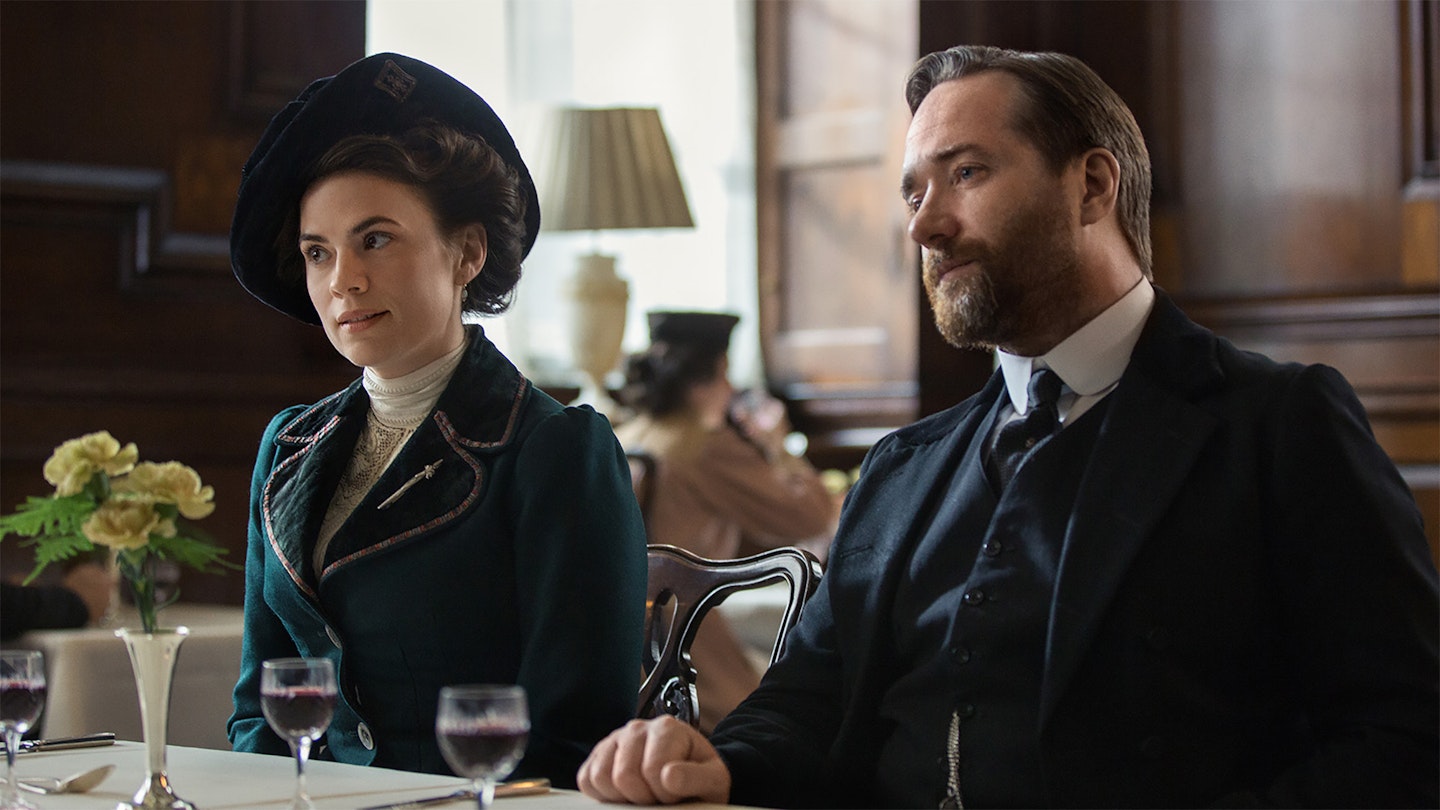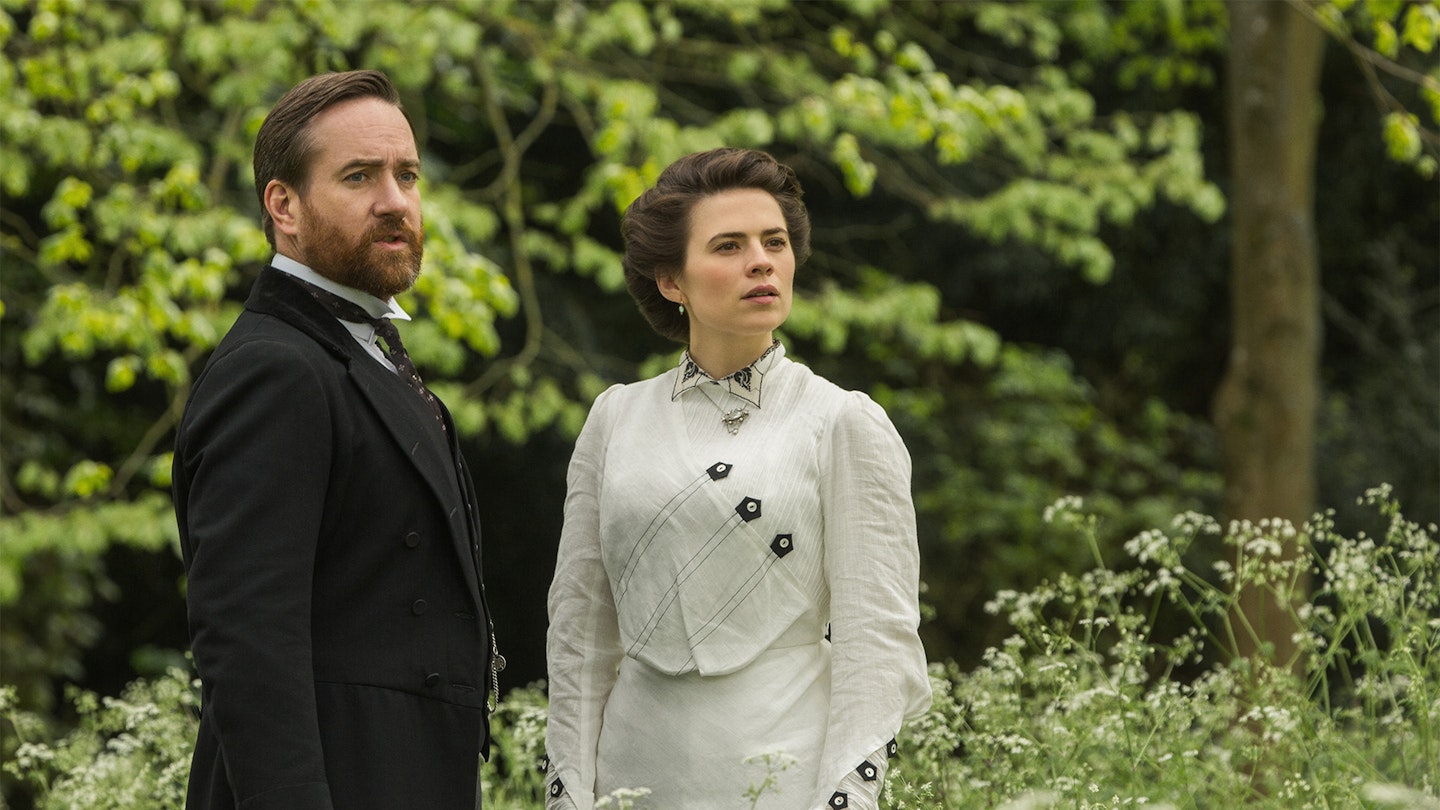It is perhaps no surprise, in a post Downton world, the BBC is adapting E.M. Forster’s Howards End into a four-hour miniseries for the Sunday 9pm slot in the run-up to Christmas. Yet what is raising eyebrows is the fact Kenneth Lonergan, the Oscar winning writer-director of Manchester By The Sea, has written the adaptation and given the British period drama a shot of US indie know-how.

“What’s great about that is that Kenny has taken a lot of dialogue directly from the book but he has done that very beautifully and very economically,” says Hayley Atwell who stars as free-thinking Margaret Schlegel. “Even the dashes, pauses and interruptions are incredibly well thought out so the punchline lands. It is a dream as an actor to have E.M. Forster come across so clearly.”
Co-star Matthew Macfadyen, who plays fat cat Henry Wilcox, has a more succinct take on Lonergan’s handi-work.
“It’s fucking brilliant.”
First published in 1910, Edward Morgan Forster’s book is a snapshot of England at the turn of the century. It follows three families who represent different stratas of British society; the rich capitalist Wilcoxes, the progressive middle class Schlegel sisters and the Basts, a young couple from a lower class. Margaret befriends matriarch Mrs. Wilcox (Julia Ormond) who promises her the family home, Howards End, in her will. When the document goes missing, all seems lost until Henry starts to show a romantic interest in Margaret. It’s this relationship that forms the core of the story, a classic clash of opposites. “He doesn’t have the emotional awareness to reach out,” says Atwell. “Margaret does. He is emotionally constipated but she is able to transcend this.”
It is a dream as an actor to have E.M. Forster come across so clearly.
Today’s scene is set in Simpson’s-In-The-Strand, one of London’s oldest restaurants — in fact the head waiter has schooled the extras in the correct way to serve and clear the table. To the eye, it is a perfect recreation of turn of the century London, full of period finery, traditional décor and an air of polite chatter. Yet, every now and then the modern world intrudes: a crew member sporting a Guns’n’Roses t-shirt (probably a first for Simpsons) is removing light switches; a warning to switch of mobile phones cuts through the hubbub of polite chatter as the camera is ready to roll.
The scene itself, a classic from the novel, is a rather uncomfortable dinner involving Margaret Schlegel (Atwell), Henry (Macfadyen), his sister Evie (Bessie Carter) and her beau Percy Cahill (Miles Jupp). The awkwardness comes from the subtext that Wilcox has orchestrated the meeting as an informal date with Margaret. Empire witnesses a lively dinner involving discussions about house letting and European cheese snobbery — “Of course they don’t have any gouda at Simpsons” — played with zippy overlapping dialogue — the anti-thesis of costume drama stiffness.
“We spoke a lot about that in the read-through and the rehearsals,” says Atwell. “Anytime she felt my accent was becoming clipped, (Director) Hettie (Macdonald) would say just relax it a little bit so it didn’t feel impenetrable to a modern day audience. There is the trap of BBC period drama acting which becomes very mannered. Hettie wants the physicality to feel like we are wearing the costume, the costume isn’t wearing us.”

Of course, this isn’t the first adaptation of Howard’s End. The 1993 Merchant Ivory version starring Emma Thompson as Margaret and Anthony Hopkins as Henry is venerated, winning an award at Cannes and three Oscars, including Thompson for Best Actress. Yet for the new cast, the reputation isn’t daunting — “In a weird way it is comforting,” says Macfadyen. “You are stepping in their footsteps.” — Atwell even getting the seal of approval from the previous Margaret Schlegel.
“I knew Emma, she played my mum (in The Duchess), so I sent an email to pay my respects,” she recalls. “She was incredibly generous. She said, ‘Don’t you ever watch anybody else doing it. You are she. She is you.’”
Thompson told Atwell that that Margaret as “literature’s first proper feminist” and the story remains very progressive in its depiction of gender. As producer Laura Hastings-Smith says, it is about women “trying to figure out how to live in the way that makes sense to them.”
Margaret’s journey also has a broader contemporary relevance. As any ‘A’ Level English swot could tell you, the key phrase in the text appears on page one: “Only connect”. For Atwell, this is Margaret’s mantra. “She is not bogged down by the class system of her time,” she says. “She becomes kind of classless in a way. She is trying to connect with other people and find her place in the world.” In an increasingly divisive time, it’s a pertinent point to make. Yet, despite its contemporary relevance, Howards End remains a story for the ages.
“It’s about sex, money, power, class,” says Macfadyen. “They don’t go out of fashion do they?”
Howards End airs on BBC1 on Sunday November 12th at 9pm.
